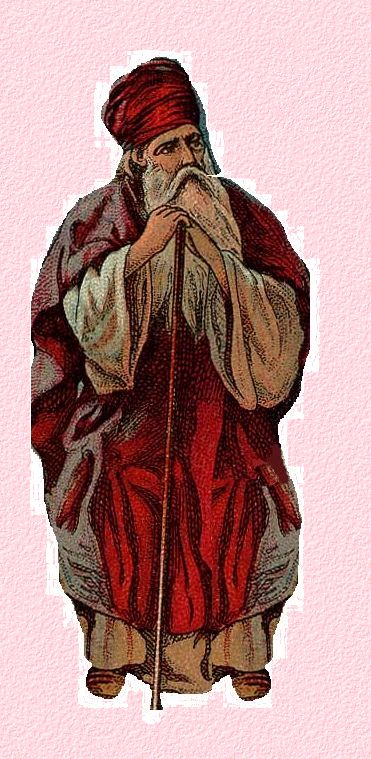There are those in politics that end up "name calling" their opposition when their position is untenable. It is true in religion as well. For example, there are articles that call conservative Christians "Pharisees." The idea is that Pharisees were condemned by Jesus; therefore, if you are a Pharisee, then you are wrong and condemned.
It is odd then when one runs upon writers that identify Jesus himself as a Pharisee. There were several denominations of the Jews in the first century. The main groups were the Sadducees, Pharisees, Essenes, Herodians, and Zealots. The sect of the Pharisees believed in the resurrection, were esteemed by the common people, taught in the synagogues, and were proponents of strict observances of the Law as each school interpreted it. After the destruction of the Jerusalem Temple 70 A.D., the Sadducees disappeared. The Pharisees sect continued.
 One of the apostles, Saul of Tarsus, admitted
that he had been a Pharisee who had been taught at the feet of the
renowned Rabbi Gamaliel.
One of the apostles, Saul of Tarsus, admitted
that he had been a Pharisee who had been taught at the feet of the
renowned Rabbi Gamaliel.
Was Jesus then also a Pharisee? He also taught the resurrection and taught that his disciples should be righteous.
Jesus grew up in Nazareth. He could have gone to a school that was an adjunct to the synagogue from ages six to twelve according to J.W. Shepard. The main idea of the synagogue service was originally instruction rather than worship which the Temple provided. Philo in one place almost protests against synagogues being regarded as other than schools. The children were gathered regularly for instruction in the synagogue itself or an adjoining room under the care of the hazsan or of a professional teacher. Everywhere the elementary school became an inseparable adjunct of the synagogue. Although Jesus could have memorized the Sacred Scriptures of the Jews in such a school, this would not have made Him a Pharisee.
Although Pharisee membership was open to anyone who memorized the Torah and memorized the Oral teachings, they had to profess to hold to certain religious beliefs.
As for the Talmud, all three writers, J. Dwight Pentecost, J. W. Shepard and Frederick Farrar, agree that the teachings of "Jesus" differed completely from those of the Pharisees' Talmud. There are no moral teachings of value compared to those of "Jesus". For example, some have pointed out that the rabbinic teachings on a “golden rule” were similar. But they are mistaken. The Pharisaic teaching is like Confucius’ “silver rule”. It is a negative: “Do not unto others…” Jesus taught a positive teaching, the golden rule: “Do unto others…”, which historically is unique.
Jesus was not a Pharisee. Note the following facts:
|
1. Jesus classed the Pharisees as a group and always in the second person, never in the first person which would have included himself as a member. 2. He condemned their oral teachings that they memorized (later recorded in the “Talmud”) but not their Mosaic teaching. 3. He characterized them as “children of the devil” and their converts as more so. 4. Just because He supported the Torah did not make Him a member of any one of the Pharisaic schools. 5. He was readily baptized by John who on the other hand had challenged the Pharisees to “repent” before they could be properly baptized. John did not command Jesus to repent. 6. The requirement to prove that one held to a certain school of Pharasaic thought to be a Pharisee disqualified Jesus as one of them. |
Jesus was not a “Pharisee”. Jesus Christ had strong words about the Pharisees, and what awaited some of them:
From the Revised Standard Version:
"He answered them, "And why do you transgress the Commandment of God for the sake of your tradition?" (Matthew 15:3-6).
"Then they understood that He did not tell them to beware of the leaven of bread, but of the teaching of the Pharisees and Sadducees." (Matthew 16:11-12)
"But woe to you, scribes and Pharisees, hypocrites! because you shut the kingdom of heaven against men; for you neither enter yourselves, nor allow those who would enter to go in" (Matthew 23:13).
"Woe to you, scribes and Pharisees, hypocrites! for you tithe mint and dill and cummin, and have neglected the weightier matters of the Law, justice and mercy and faith; these you ought to have done, without neglecting the others. You blind guides, straining out a gnat and swallowing a camel!" (Matthew 23:23-24).
"The scribes and the Pharisees sit on Moses' seat; so practice and observe whatever they tell you, but not what they do; for they preach, but do not practice" (Matthew 23:2-9).
The Pharisees were correct when they "sat in Moses' seat" (Matthew 23:1; i.e., quoted the Law), and they were to be obeyed by the Jews under that authority of the Torah. But, the Pharisees were not to be copied in their way of life.
To teach the righteousness of the gospel of Christ is not being a Pharisee. It is following and imitating Jesus, the Son of God.
- Gaylon West
Throw Out the Lifeline
